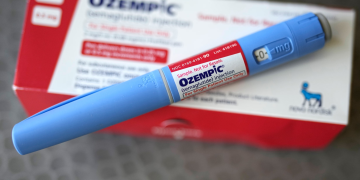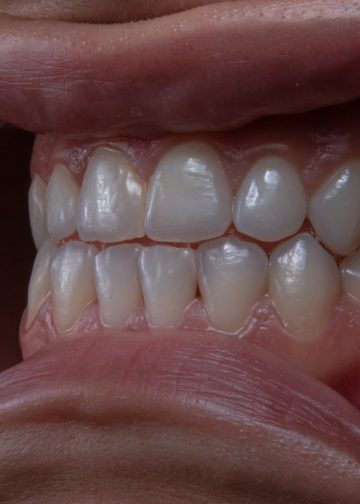Ginger is a flavoring condiment that belongs to the same family as turmeric and cardamom. The medicinal and cooking use of ginger dates back to ancient times. In food, it is used in its dry or fresh form.
Ginger root is one of the most popular spices around the world. This spice is native to South Asia and is grown in warmer parts of Asian countries, but South America, Africa and Middle East now grow this spice too.
It is one of the most widely consumed dietary condiment around the world.
Gingerol and paradol are pungent substances in this root that can promote anti-tumor effect.
For thousands of years, ginger has been used to cure number of ailments like flu, nausea, migraines, hypertension, arthritis, etc.
It also have ability to reduce nausea and inflammation owing to chemical substances found in it.
Improves Brain Function:
Many reports have claimed that ginger improves memory. Additionally, in many traditions, it is used as an ingredient to enhance brain function.
With the increase in age the cognitive impairment rises. This is due to oxidative stress and can affect the ability to focus, calculate, and recall.
A study done on rats reported that ginger extract indeed enhances memory and protect brain damage.
One research on middle aged women showed the effect of ginger on brain activity. The study demonstrated the improvement in both attention and cognitive processing without any side effects.
May Aid Weight Loss:
Obesity have been a global problem in modern times. Although, ginger does not directly guarantee weight loss, there are certain compounds in ginger that can aid in improving metabolism.
The improved metabolism can indirectly help in losing weight. Using ginger with certain other ingredients like lemon can help suppress the hunger.
Ginger and healthy ginger products might work for some people to lose weight but it is in no way could be used for a long period of time.
Going for healthy diet is a much beneficial option.
Prevents Nausea:
One of the most basic and well known use of ginger over centuries is its role in reducing the symptoms of nausea and vomiting.
This natural home remedy is used and recommended by many people for nausea, especially for pregnant women.
Different types of factors can induce nausea or vomiting like sea-sickness, morning sickness and motion sickness. Mostly it is recommended to use ginger root in these conditions.
Possibly Help in Preventing Cancer:
Over the years many studies have been done to check anti-carcinogenic properties of ginger.
Ginger root’s affect in prevention of cancer has been examined in many types of cancers like, lymphoma, hepatoma, skin cancer, colorectal cancer, and liver cancer.
The phenolic compounds in ginger possess strong anti-inflammatory and anti-oxidation properties. Subsequently, these qualities exert anti-carcinogenic and anti-mutagenic activities.
Pungent substances including gingerol, paradol, shogaols and zingerone are responsible for giving anticancer properties.
Effective against Cardiovascular Disease:
Ginger is surprisingly not only affective against cancers, it also has positive effect on heart health.
There are some evidences that supports its role in improving cardiovascular functions.
Theoretically, the therapeutic effects of ginger could be safer than regular cardiovascular drugs. However, the data on ginger’s effect on human health is scarce.
So far, the studies have been done animals, like rats to see the effect on heart health. The results indicated that ginger reduce risk of heart problems in diabetic rats.
Anti-Inflammatory effects:
There are numerous health claims that support ginger’s ability to reduce inflammations, swellings and pains.
It can also work against osteoarthritis, and rheumatism.
A study suggest that gingerol compound exhibit pain relieving and anti-inflammatory properties.
Can help lowering cholesterol:
A high level of LDL cholesterol can give rise to certain health problem in body, especially cardiovascular diseases.
The extract of ginger have the ability to fight LDL cholesterol.
A certain mechanism leads to lowering of cholesterol by ginger. This is well understood by scientists. In this mechanism, the body’s use of cholesterol is increased by activation of enzymes and in result cholesterol is decreased.
The consumption 5 gram of raw ginger daily for two months significantly reduced LDL levels in a small group study.
However, it should be remembered that most of the people experience bad mouth feel on ingesting ginger. The drop in LDL level is remarkable but the dose used in patients is very high.
So if you are not a fan of ginger then sticking to your regular medicine for cholesterol is a better idea.
Effective Against diabetes:
Ginger possibly have anti-diabetic effects as supported by some researchers.
It was reported that pre-treatment of ginger in patients can prevent hyperglycemia and hypoinsulinemia. Although the response depends on dosage of ginger.
Ginger may improve and control your blood sugar level for long term if you have type 2 diabetes.
One report from Australia suggested that ginger can increase glucose uptake into muscle cells. This helps in managing high level of blood sugar.
However, the experimental data on ginger’s response to diabetes is controversial and needs more investigation.
Other uses of Ginger:
- It is used as flavoring agent in food and beverages.
- Ginger can give fragrance in soaps and cosmetics.
- May play a role in glowing skin and healthier hair growth
- Can reduce scars and make skin look healthy
- Have possible anti-aging properties.
Side Effects of Ginger:
Although by all health standards ginger is considered safe, there could be some rare exceptions. People may suffer some side effects from eating too much ginger.
- Restlessness
- Sleepiness
- Heartburn
- Gastrointestinal Disturbance
- Sedation
- Can react with negatively with medications.
Conclusion



















